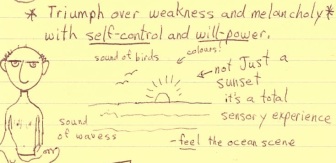
Here we go. There’s only one thing to do. You know what it is. You know what you want.
Don’t you?
 What is the one thing you want? What element is missing? Say the first thing that comes to mind.
What is the one thing you want? What element is missing? Say the first thing that comes to mind.
Is it money? love? leisure? comfort? freedom? a good job? better health? a better attitude? a friend? a new car? a martini? drugs? travel? a new house? nicer clothes? a cabin in the woods? good sex? Is it peace? a family? beauty? Is it wisdom? good food? excitement? adventure? contentment?
What is it?
 Life is epitomized by two questions:
Life is epitomized by two questions:
1) What do you do when you feel too much?
2) What do you do when you feel too little?
In 1975 Diana Ross sang the questions most of us ask ourselves at least once, “Do you know where you’re going to? Do you like the things that life is showing you? Where are you going to, do you know? Do you get what you’re hoping for? (“Theme from Mahogany”).
 Do you know what you want?
Do you know what you want?
When you lay down your sweet head, how do you know you haven’t just “Wasted Days and Wasted Nights” like Freddy Fender?
Kathy Caprino, a women’s coach of success (not failure), wrote that of all things professional women (as opposed to amateur) say they want, the #1 mentioned missing element is… Happiness.
 Caprino writes, “Happiness continually escapes them because, first, they don’t really understand exactly what will make them happy. They just don’t know themselves well at all. Secondly, they search outside themselves for happiness – in a job, a husband, a family, a title, a paycheck, a fancy house. As a result, Happiness is constantly out of their control and a perpetual moving target that never stands still long enough for them to grasp.”
Caprino writes, “Happiness continually escapes them because, first, they don’t really understand exactly what will make them happy. They just don’t know themselves well at all. Secondly, they search outside themselves for happiness – in a job, a husband, a family, a title, a paycheck, a fancy house. As a result, Happiness is constantly out of their control and a perpetual moving target that never stands still long enough for them to grasp.”
“I’m not saying that these things don’t bring happiness – of course, they can. The key point is that if everything you’re searching for remains outside of you, you’ll always be scrambling and chasing” (source).
We’re told that the biggest challenge is to know what we want, but that’s like the line from Pink Floyd, “If you don’t eat your meat” (if you don’t know what you want), “you can’t have any pudding” (you can’t be happy). (“Another Brick In The Wall“)
It’s a vicious circle. You have to know what you want to get it and if you don’t, you’re told, “Want harder! Dream bigger!” It leaves you somewhere between a rock (wanting) and a hard place (getting).

Nobel Prize winner Doris Lessing (1919-2013) wrote, “Do you know what people really want? Everyone, I mean. Everybody in the world is thinking: I wish there was just one other person I could really talk to, who could really understand me, who’d be kind to me” (The Golden Notebook, 1962).
 Aviator and author, Ann Morrow Lindbergh (1906-2001) spoke of surrendering to one person in conversation, “It is not restful, it is not possible to talk wholeheartedly to more than one person at a time. You can’t really talk with a person unless you surrender to them…“
Aviator and author, Ann Morrow Lindbergh (1906-2001) spoke of surrendering to one person in conversation, “It is not restful, it is not possible to talk wholeheartedly to more than one person at a time. You can’t really talk with a person unless you surrender to them…“
Cheap Trick sang of surrender, “Mommy’s all right. Daddy’s all right. They just seem a little weird. Surrender. Surrender. But don’t give yourself away. Hey, heeeeeey.” Sarah McLachlan sang of surrender too, but hers was sweet and all she had to give (“Sweet Surrender“).
The art of enjoyment is to surrender to what is and waste time freely.
 News today is gone tomorrow. Resist what is and happiness eludes. Wishing something different smothers enjoyment. Wanting comes up with a plan and getting is a die cast. It’s like the Zen story of the old man who falls in a river and is taken over a waterfall.
News today is gone tomorrow. Resist what is and happiness eludes. Wishing something different smothers enjoyment. Wanting comes up with a plan and getting is a die cast. It’s like the Zen story of the old man who falls in a river and is taken over a waterfall.
 Onlookers fear for his life but the old man comes out unharmed. Asked how he survived he says, “I accommodated myself to the water, not the water to me. Without thinking, I allowed myself to be shaped by it. Plunging into the swirl, I came out with the swirl. This is how I survived” (source).
Onlookers fear for his life but the old man comes out unharmed. Asked how he survived he says, “I accommodated myself to the water, not the water to me. Without thinking, I allowed myself to be shaped by it. Plunging into the swirl, I came out with the swirl. This is how I survived” (source).
Enjoyment is a flowing kindness. If thoughts are demanding, listen without acting because thoughts can trick you into believing it’s your self wanting the best for you (see: “It’s not me”).
To be with reality without wanting is to enjoy peace like Otis Redding. “So I’m just gonna sit on the dock of the bay. Watching the tide roll away. Ooo, I’m sittin’ on the dock of the bay. Wastin’ time.“

People flounder for meaning, but as Charlie Chaplin said, “What do you want a meaning for? Life is a desire, not a meaning” (My Life in Pictures, 1974). Whatever you do wastes time. The trick is to waste time with abandon.
Be easy with what is and accept change as enjoyment.

If life is a desire you can’t help, stop expecting. It leaves you open for disappointment. You might even wish you’d never been born like George Bailey in the movie It’s A Wonderful Life.
Speaking of which, the philosopher David Benatar argues in Better Never to Have Been: The Harm of Coming into Existence that a hypothetical person’s non-existence is better than an actual person’s (source).
Benatar hears a “Baby Elephant Walk” and lays it out thus:
 1) If a person exists, pain is bad.
1) If a person exists, pain is bad.
2) If a person exists, pleasure is good.
3) A non-existing person has an absence of pain (that’s good).
4) A non-existing person has an absence of pleasure (not bad).
To Benatar there’s an asymmetry in favour of nonexistence:

But if Benatar didn’t exist, how could he muse on this? Nonexistence is not an experience. Would Frankenstein rather not live because of pain in his thumb? If the blind man didn’t exist, how could he enjoy a cigar?
Benatar could learn from Frankenstein and Helen Keller (1880-1968) who wrote: “Everything has its wonders even darkness and silence, and I learn whatever state I may be in, therein to be content.”
If you’re made of corpses or are deaf and blind, at least by existing you experience something! If you can read this, you’ve been procreated. Enjoy it! The art of enjoyment includes singing Saba Lou’s song, “Early to bed. Early to rise. Picking my nose. Wasting my time. These are my good habits. These are my bad habits. But I never stop feelin’ fine” (“Good Habits (and bad)“).
Enjoy any given day (even a bad one). Take a deep breath. What have you got to lose?

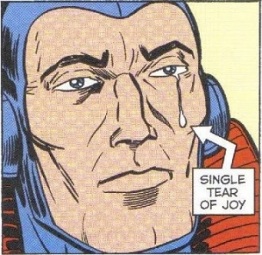 Happiness and enjoyment are related but where enjoyment is temporary, happiness is durable. If enjoyment is the journey, happiness is the destination. If tears of happiness come from the heart, tears of enjoyment come from the belly from laughing. If enjoyment comes as a carefree feeling, happiness comes mainly from caring.
Happiness and enjoyment are related but where enjoyment is temporary, happiness is durable. If enjoyment is the journey, happiness is the destination. If tears of happiness come from the heart, tears of enjoyment come from the belly from laughing. If enjoyment comes as a carefree feeling, happiness comes mainly from caring.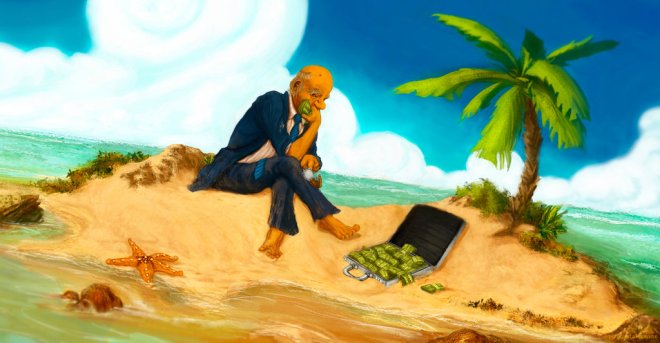
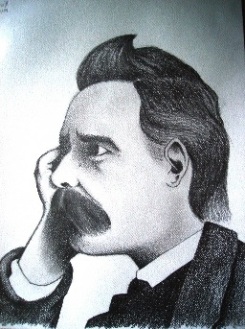
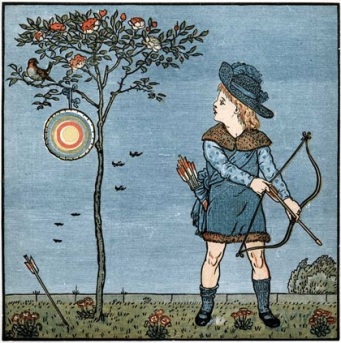
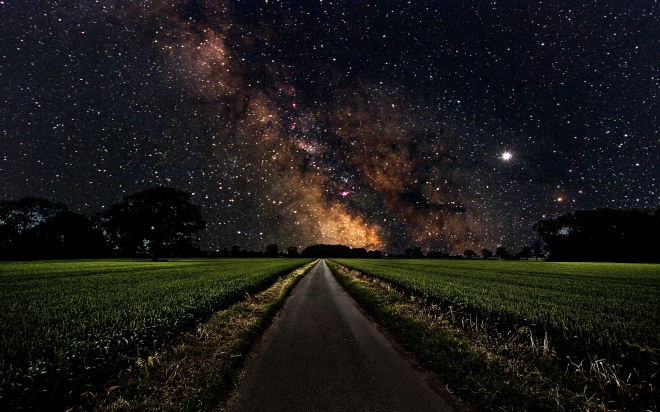
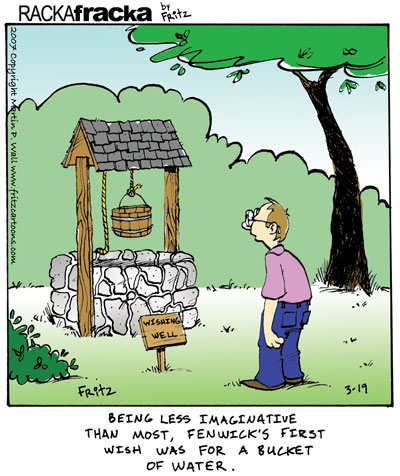

 The sky rumbles and ruminates upon your fate as you stand bewildered. A thundering song rocks your brain: “I was caught in the middle of a railroad track (thunder!). I looked round and I knew there was no turning back (thunder!)” (“
The sky rumbles and ruminates upon your fate as you stand bewildered. A thundering song rocks your brain: “I was caught in the middle of a railroad track (thunder!). I looked round and I knew there was no turning back (thunder!)” (“

 We trick ourselves into thinking there must be a watcher for something to be watched, that what happens now follows the past, but it’s the other way round: the past follows from what’s happening now.
We trick ourselves into thinking there must be a watcher for something to be watched, that what happens now follows the past, but it’s the other way round: the past follows from what’s happening now.


 Your mood could be open to enjoyment like a 24 hour diner or closed like a bank after 5 PM. It’s a matter of will and 1-2-3:
Your mood could be open to enjoyment like a 24 hour diner or closed like a bank after 5 PM. It’s a matter of will and 1-2-3:
 Let’s say you had an argument. You’re mood is angry and sad. You know life is short. You take action. You go into nature (wherever that happens to be) and you see a sunset.
Let’s say you had an argument. You’re mood is angry and sad. You know life is short. You take action. You go into nature (wherever that happens to be) and you see a sunset.